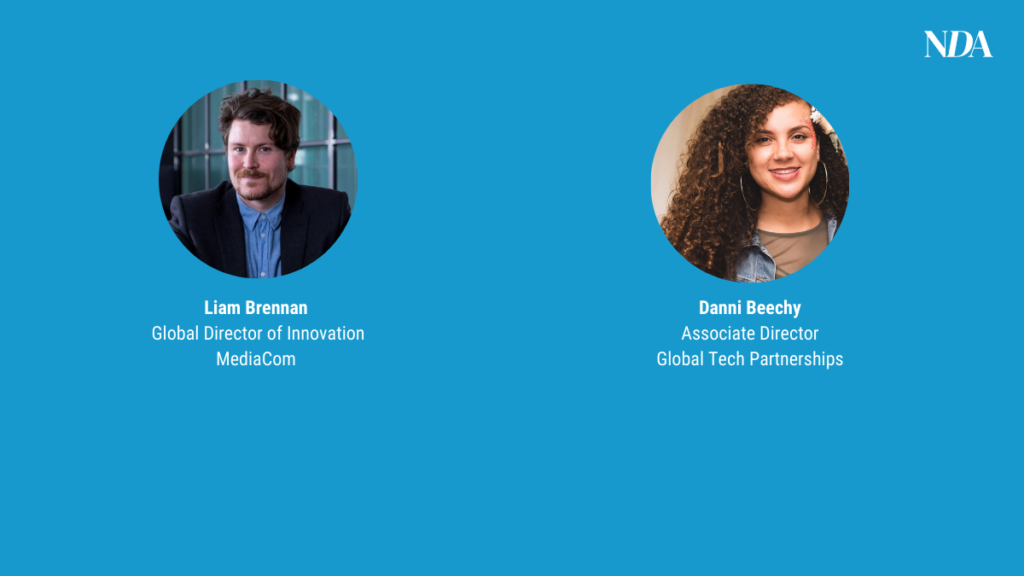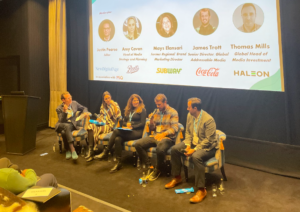Following a column from NDA Editor Justin Pearse highlighting the fact that around 80% of opinion articles submitted to the media are accredited to men, we have been talking to leaders across the industry to gather views on the reasons for this situation and how it can be addressed.
Next up is Danni Beechey, Associate Director, Global Tech Partnerships, MediaCom, and Liam Brennan, Global Director of Innovation, MediaCom
Why do you think the majority of thought leadership articles submitted to the press are by men?
DB: We all know the statistic that a man will apply for a job if he can meet half of the hiring requirements, whereas a woman will apply when she is confident, she can meet nearly all of them. I think the same logic applies for creating thought leadership work – women are more likely to proactively offer their opinion on a topic when they are sure they are the leading voice in that field, or confident they have the right answer.
And of course, more men hold senior positions, so they are likely to be more confident based on their position that they are the subject matter experts. There are a whole host of other reasons including confidence, finding the time outside working hours, and being encouraged to provide opinion pieces in the first place.
There is the issue of men running publications having a pipeline of contributors who are also male, just by virtue of their networking circles.
What’s needed to encourage companies to increase the diversity of their public voices?
First of all I think the industry needs to really commit to the idea that senior voices often aren’t the experts – their knowledge is broad but often not deep. Having an opinion piece written by a CEO is great for awareness and for PR, but often the more interesting and nuanced opinions will come from the people doing the work, at more junior levels. Getting comfortable with not defaulting to the most senior opinion will open the doors for more women, and generally more diverse voices to be heard.
It would be valuable for marketing teams within companies to think about ways in which they can develop writing skills amongst their company’s teams – perhaps writing advice could be shared and more formal links to the publications could be formed so that people of all levels are aware of how to submit their work.
LB: This is very much an exercise in resetting, or expanding, the ‘go-to’ person. Thought leadership is often a last-minute exercise – a request for comment on the day’s news, a POV on a hot topic due to go to press that week etc – and the default is to go to someone that has previously delivered the work, or the lead function, as it’s an easy/reliable option.
If that go-to role for comment has previously been white male dominated, then it will continue to be unless another person is asked for comment, or someone else is put forward in their place.
That cycle needs to be broken by introducing a more diverse roster of experts within companies for thought leadership – and for those who have previously been that go-to voice within the company share the opportunity with a wider group before agreeing to comment.
What do you think are the negative effects of this situation on both the respective companies and the wider industry?
DB: It creates a feedback loop – the more male voices we hear in opinion pieces, the more we are trained to seek male opinions and insights, and the more we associate men as the experts on a given topic. This makes it harder for women to feel that their voices can be heard. In the same way we understand that we need more women as role models in senior roles, we also need more women’s voices being shared in the publications we read.
LB: A more diverse workforce produces better work, and a more diverse range of thought leadership produces better industry thinking – more voices from different functions in different specialisms. By not introducing more diversity into our industry voices we’re not only holding individuals back in terms of development, we’re also holding back the growth of our industry knowledge as a whole.









